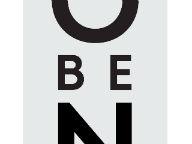Faculty News
—
Professor Steven Blader discusses the adoption of new systems to evaluate employee performance
—

Excerpt from MarketWatch -- "There are several reasons why many large companies are reevaluating their performance review systems, said Steven Blader, a professor of management and organizations at New York University’s Stern School of Business. As companies compete for talent, they have to pay attention to what employees want, he said; plus, negative feelings about 'big data' could be part of the reason employees no longer want to be evaluated by a number, but would prefer more specific feedback."
Faculty News
—

Excerpt from MarketWatch -- "There are several reasons why many large companies are reevaluating their performance review systems, said Steven Blader, a professor of management and organizations at New York University’s Stern School of Business. As companies compete for talent, they have to pay attention to what employees want, he said; plus, negative feelings about 'big data' could be part of the reason employees no longer want to be evaluated by a number, but would prefer more specific feedback."





















